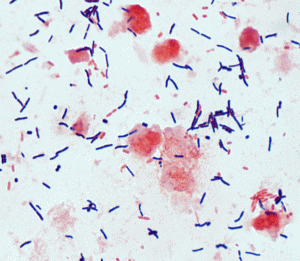Count on Ed Yong to keep us updated on the wonderful world of gut bacteria. Today he brings news of clinical trials where fecal transplants are used to ward off infection by C. difficile. An excerpt is below. Click here for more.
Last week, I wrote about scientists who developed a stool substitute and used it to cure gut infections in two women. This sham poo contained 33 gut bacteria, which were meant to displace the harmful ones that were causing diarrhoea in the patients.
For decades, doctors have been doing the same thing using actual faeces. This unorthodox technique, known as a faecal transplant, has been used to treat over 500 people with recurring infections of the diarrhoea-causing bacteriumClostridium difficile.
The concept is inherently revolting, and many mistake it for pseudoscience. But faecal transplants work. Over 90 percent of patients make a full recovery, far greater than the proportion who responds to conventional antibiotics. (In fact, it may be antibiotics that cause recurring C.difficile infections in the first place, by annihilating the beneficial gut bacteria that normally keep such infections at bay.)
Some might argue that all of this amounts of anecdotal evidence. Faecal transplants have never been tested in a randomised clinical trial – the gold standard of medicine. But that objection no longer applies. The first results from a faecal transplant trial have been published in the New England Journal of Medicine, and they are a resounding vindication for the technique.
